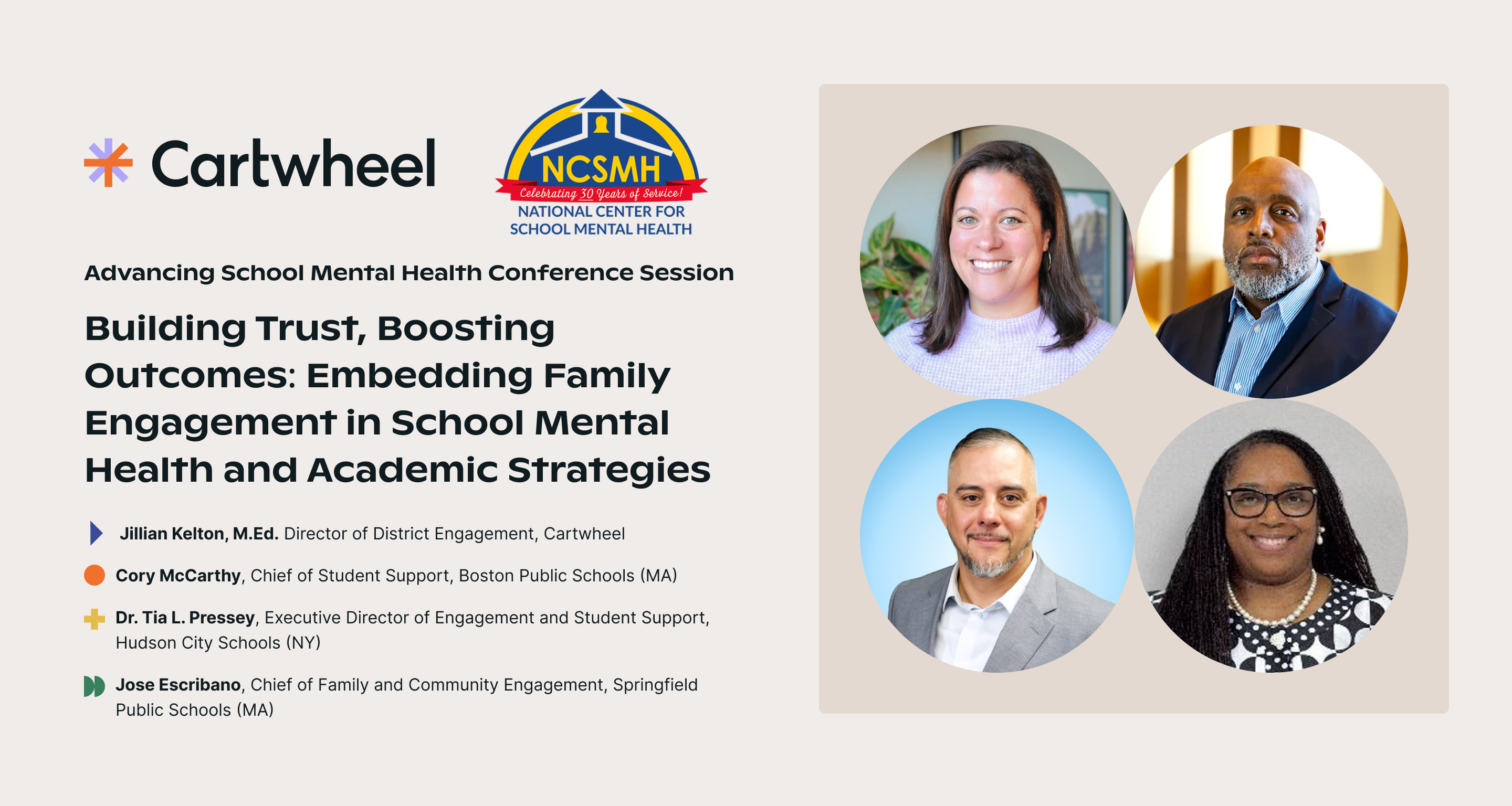All children and teens experience a broad range of emotions and challenges as they develop. But how do you know when their behavior is developmentally appropriate or a reason to seek mental health support?
In a recent parent webinar, Dr. Marcus Cherry, Senior Attending Psychologist at Boston Children’s Hospital and Assistant Professor of Psychology at Harvard Medical School, spoke to this exact question. In his presentation he addressed the differences between normative behavior and signs it’s time to get support. This article is a synthesis of his presentation, highlighting the key takeaways and actionable insights for parents and caregivers.
5 Telltale Signs of Concerning Behavior
Knowing what to expect and when something is awry can be difficult to gauge – especially when it comes to mental health. Half of all lifetime cases of mental health disorders emerge by age 14, but it takes on average 11 years for those with symptoms to get treatment. This delay in care can dramatically disrupt the trajectory of someone’s life, leading to lower educational attainment, fewer economic opportunities, and increased rates of suicide.
Early parental intervention can change the trajectory of a child’s life, ensuring they get the care needed to get back on track. But distinguishing between what’s normal and what requires support can be challenging. When trying to determine whether a child’s behavior is cause for concern, consider five key criteria:
Developmental Appropriateness
When observing a child's behavior and emotional responses, it's crucial to assess whether these are typical for their developmental stage. Children and adolescents go through various stages of emotional and psychological growth, and what is considered normal behavior can vary significantly from one age to another. For example, a toddler may have tantrums as a part of their normal development, but an older child would be expected to have acquired skills to communicate their feelings and needs. Understanding developmental milestones helps parents discern between behaviors that are part of natural growth processes and those that may signal underlying psychological distress. Research emphasizes the importance of matching expectations with developmental norms to avoid misinterpreting behaviors that are part of development.
Frequency of Behaviors
The regularity with which certain behaviors or emotional states occur can be a strong indicator of underlying mental health concerns. Occasional outbursts or periods of sadness may be typical, but when these behaviors become frequent and pervasive, they warrant closer attention. Research suggests that frequent occurrences of disruptive behaviors or intense emotional states, especially if they are out of character for the child, may indicate stress, anxiety, depression, or other mental health issues that require intervention.
Duration of Behaviors
The length of time a child remains in a particular emotional or behavioral state is also telling. Transient behaviors are a normal part of child development, such as brief periods of sadness or anxiety in response to specific events. However, when a child remains in a distressed state for an extended period, significantly longer than would be expected for their age and the situation, it may indicate a mental health condition.
Intensity of Behaviors
Evaluating the intensity of the child's behaviors and feelings involves considering how severe these are compared to what might be expected at their developmental stage. Intense reactions to everyday situations, excessive fear, anger, sadness, or overreaction to minor triggers can be signs of underlying mental health issues. The degree of intensity that disrupts normal functioning or significantly deviates from developmental norms suggests that the child is experiencing more than just typical developmental challenges.
Impact on Day-to-Day Functioning
Perhaps the most critical factor to consider is whether the child's behaviors or emotional states interfere with their daily life. This includes their ability to participate in school, engage in social activities, and maintain healthy family relationships. When a child's behavior disrupts their routine or the family's functioning, it's a strong indication that additional support is needed. This disruption could manifest in declining academic performance, withdrawal from friends or activities they once enjoyed, or increased family conflict.
What to Do When Symptoms are Cause for Concern
When concerns arise about a child's mental health, knowing the initial steps to take can significantly influence the journey ahead. Understandably, reaching out to a mental health provider might not be everyone's immediate response.
It's often beneficial to start by consulting with trusted adults in the child's life. This could include educators, adjustment counselors, or other figures within your community. These individuals with strong rapport and relationships can offer valuable insights from their observations and interactions, providing a broader perspective on a child's behavior and emotional state.
If these conversations affirm initial observations, scheduling an appointment with a pediatrician or primary care physician is the right next step. They’ll be able to provide a medical evaluation and refer you to the right mental health professional. School districts may also have in-house counselors or community partners who can support this process.
Preparing Children for Lifelong Success
Equipped with the right knowledge and resources, parents and caregivers can play an essential role in supporting their child's mental and emotional well-being. Keeping an eye on the developmental appropriateness, frequency, duration, intensity, and the impact of behaviors, can help get children into care and avoid the negative impacts of delayed care. Early parental intervention and advocacy can make a significant difference in your child's life, helping them grow into resilient and emotionally healthy adults.
______________
DISCLAIMER:
The information, including but not limited to, text, graphics, images and other material contained on this website are for informational purposes only. No material on this site is intended to be a substitute for professional medical advice, diagnosis or treatment.
If you or your child are in crisis or experiencing mental health problems please seek the advice of a licensed clinician or call 988.





